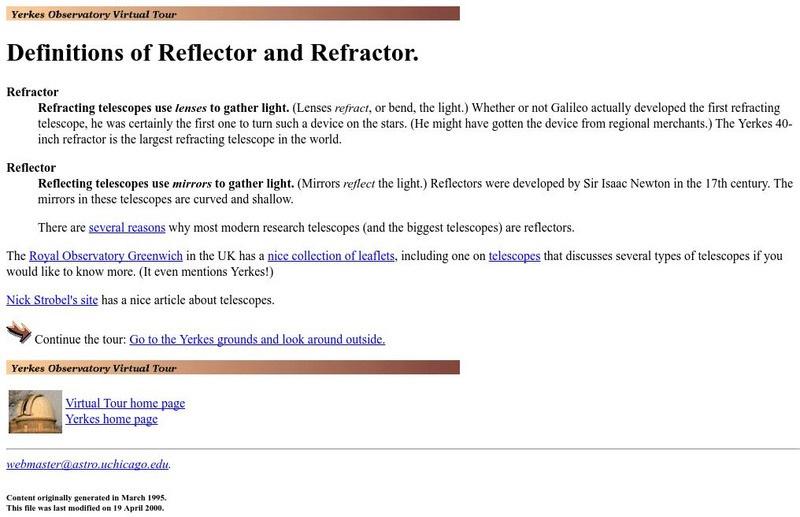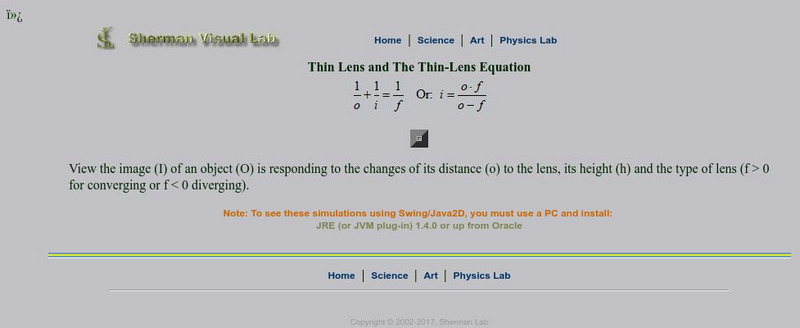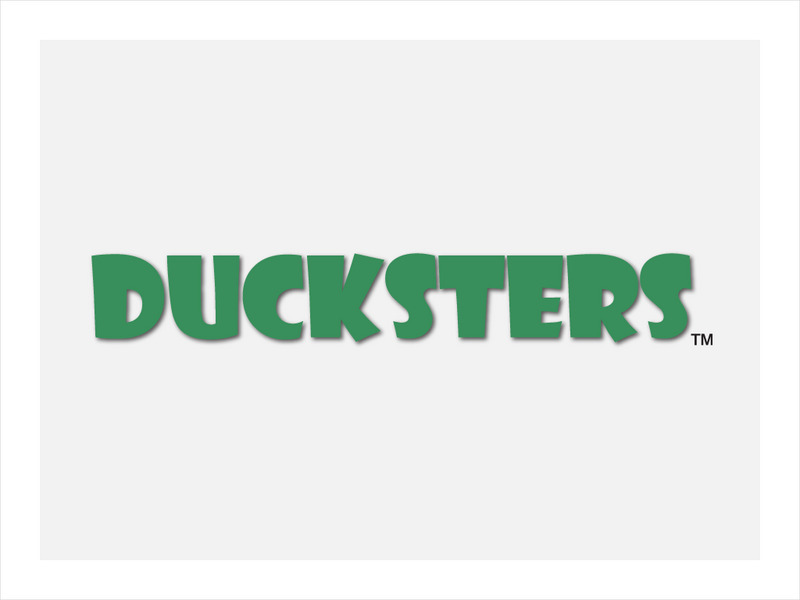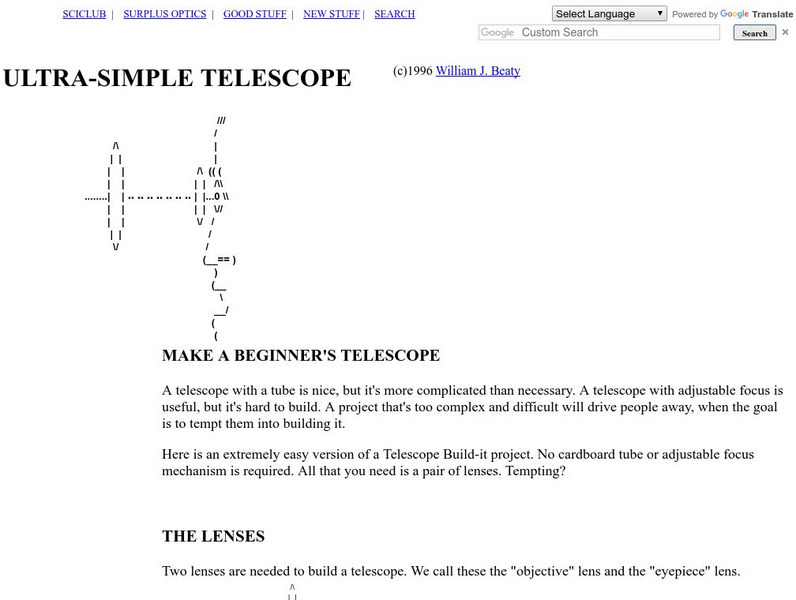University of Maryland
Optics Highlights: The Telescope
Part of an anecdotal history of optics and the study of light. Extremely thorough treatment of the invention of the telescope. Includes a short biographical sketch and discusses the work of Isaac Newton which focuses on his contribution...
Physics Classroom
The Physics Classroom: Reflection and Mirrors: Optics Bench Interactive
Find out about the physics behind those fun-house mirrors. Students manipulate a virtual optics bench to explore the images formed by mirrors and lenses.
Physics Classroom
The Physics Classroom: Refraction and the Ray Model of Light: Anatomy of a Lens
Illustrated diagrams in this tutorial help students understand the properties and functions of lenses.
Optical Society
Optical Society of America: Optics for Kids: Make a Telescope
An activity for making a telescope using a cardboard tube and two lenses. Accompanied by an explanation of how the telescope works, and a link to an article about lenses.
Optical Society
Optical Society of America: Optics for Kids: Lens Activity
An investigation into how lenses behave. Students explore using convex and concave lenses in various ways and record their observations. They are then are directed to another site to try activities where they can manipulate virtual lenses.
Physics Aviary
Physics Aviary: Lens Lab
This lab is designed to have students investigate the changes that occur to images formed by converging lenses based on the focal length of the lens, the height of the object and the location of the object. This video will help...
Physics Classroom
The Physics Classroom: Refraction/ray Model of Light: Farsightedness/correction
A brief introduction to the physics side of farsightedness, and how lenses correct this vision defect.
Physics Classroom
The Physics Classroom: Refraction/ray Model of Light: Nearsightedness/correction
A brief introduction to the physics side of nearsightedness, and how lenses correct this vision defect.
BBC
Bbc: Gcse Bitesize: Lenses
Lenses are precisely shaped pieces of glass that have been developed and used in corrective glasses, telescopes, microscopes, binoculars, and magnifying glasses. They can be convex or concave. Links are provided to a video an a test.
CK-12 Foundation
Ck 12: Physics Simulation: Magnifying Glass
[Free Registration/Login Required] Learn about the type, size, location, and orientation of the image that forms when a thin lens is used to view an object using this interactive simulation. A PDF worksheet and a video tutorial are also...
Khan Academy
Khan Academy: Thin Lens Intuition
Test your understanding of the thin lens approximation diagram.
CK-12 Foundation
Ck 12: Physics: Geometric Optics Study Guide
Learn and understand geometric optics with this review resource.
PBS
Pbs Learning Media: Lens and Mirror Lab
Determine the location of the image in this interactive simulation of a lens and mirror optics bench. Both converging and diverging lenses and mirrors are included.
University of Chicago
University of Chicago: Reflector and Refractor
From the Yerkes Observatory Virtual Tour web site. Compares and contrasts reflecting and refracting telescopes. A link from the page leads to a second page which explains why most modern research telescopes are reflecting telescopes.
Exploratorium
Exploratorium: Water Sphere Lens
A discussion of how to make a magnifying lens exhibit using a water-filled flask and a light bulb. Consists of assembly instructions and a "To do and notice" section. Great for a teacher demonstration or a student project.
Other
Sherman Visual Lab: Thin Lens
Under the title, "Thin Lens and The Thin-Lens Equation," this site provides an animation of an object responding to the changes of its distance to the lens.
Other
Arab Physics
While some of the pages on this site have yet to be filled, the pages that are complete are comprehensive. For example, pages on friction, heat, and the Doppler effect are illustrated and explain relevant formulas. A biography page...
Ducksters
Ducksters: Physics for Kids: Lenses and Light
Kids learn about lenses and light in the science of physics including concave, convex, converging, diverging, focal point, meniscus, and Plano lenses.
Ducksters
Ducksters: Physics for Kids: Telescopes
Kids learn about telescopes in the science of physics including lenses, mirrors, refracting, reflecting, the history, and the Hubble Space Telescope.
Other
Science Hobbyist: Making Telescopes
Site describes how to construct a telescope and what you can do with it. Also provides a simple explanation of how telescopes work.
ClassFlow
Class Flow: Introduction to Light
[Free Registration/Login Required] This flipchart introduces fifth graders to the science of light. Principles such as transparent, translucent, opaque, reflection, and refraction are covered. Concave and convex mirrors and lenses are...
Other
Focus on Photography
These pages include the kinds of information typically covered in a basic photography course, including common features of digital and conventional cameras, photographic composition, types of lighting, and recommendations for evaluating...
Optical Society
Optical Society of America: Optics for Kids: Shimmering Lenses
An experiment using Jell-O to create lenses, to see how light behaves with flat, concave, and convex lens surfaces. With an explanation of what is observed, and a link to an informative article on lenses.













